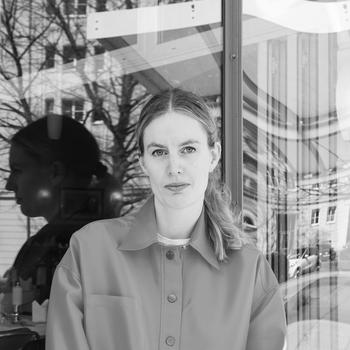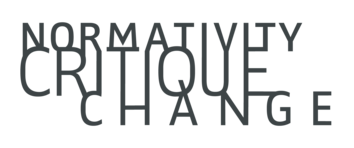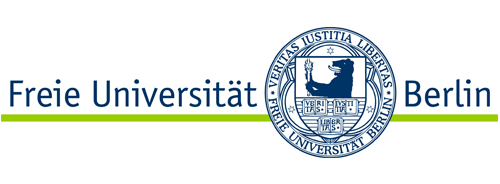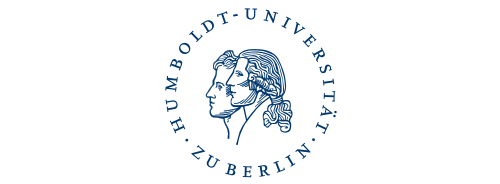Isabel Mehl

Researcher
Altensteinstr. 15
14195 Berlin
Isabel Mehl is a Berlin based art historian, writer and art critic. Her texts have been published in frieze, Texte zur Kunst, and elsewhere. Her current areas of interest include the intersection of criticism and fiction, the social figure of the female art critic, museum scenes in painting/film, “autofiction” (for lack of a better term), as well as self-portraits by women artists. She studied art theory, media studies, media philosophy and media art in Marburg, Oslo, Karlsruhe and New York. She completed her doctorate on the fictional art critic Madame Realism that was created by writer and cultural critic Lynne Tillman in the 1980s while being part of the research training group “Cultures of Critique” at Leuphana University Lüneburg in 2020. From 2021 until the beginning of 2023, she was a Postdoc at Ruhr University Bochum. In April 2023 she joined the research training group “Normativity – Critique – Change” at FU Berlin.
Besides her academic work she co-founded the feminist working collective (FAK) in 2012 in Karlsruhe and was co-editor of their magazine “Body of Work” (2015). Since 2016 she collaborates with art historian Oona Lochner under the label “From Where I Stand: Feminist Art/Writing. Subjectivities, Genealogies, and Critique” offering writing workshops, writing collaboratively and giving talks. She realized several audio plays (Deutschlandfunk Kultur, WDR) as well as short films, most recently “Agent of Doubt” (2022) together with artist Alina Schmuch.
This is not a love letter. On the motif of the letter in painting
In European painting, the letter is usually depicted as a white shaded surface; the writing is generally indecipherable. In this way, the letter focuses the viewer's attention in a special way. It exhibits and, at the same time, guarantees its mystery. This results in the constant need to actualize the letter when looking at it: it embodies a gap, something ambiguous that is “filled” with meaning and at the same time eludes these attributions. In this tension lies the potential to become aware of the normative permeation of the reading of images. The letter functions as a moment of condensation that represents the dependence of the act of looking at art on the situatedness of the viewer.
Historically, the letter motif is directly linked to the female letter reader (rarely the female letter writer). Numerous women receiving and reading letters can be found in art history. In the 17th century, the letter motif became omnipresent in Dutch painting and the letter became synonymous with the love letter. However, if one looks beyond the 17th century (my focus is on the 19th/20th century), the understanding of the object of the letter itself expands, the mystery of which can be attributed less clearly to the love entanglements of the people depicted.
In any case, the white page depicted is not as blank as it first appears. This raises the question of whether the letter motif can actually be read as an expression of a gesture of withdrawal (the words are kept invisible): Is it a withdrawal of information or a shift in focus towards reflecting on one's own view of art? And how does the gaze change at a time when the cultural technique of letter writing hardly seems to play a role in private communication and individual countries (e.g. Denmark) stop delivering letters? What function does the letter motif fulfill in the respective works? To what extent do the works address class or gender relations? What cultural specifics can be described in the letter scenes? What is the specificity of the letter motif in its use by female artists?
Monographies
Im Zeichen des Zweifel(n)s: Madame Realism oder: Die Funktion der Fiktion in der Kunstkritik, edition metzel, München, 2022.
Editorship
Critique: The Stakes of Form, Sami Khatib, Holger Kuhn, Oona Lochner, Isabel Mehl, Beate Söntgen (Hrsg.), diaphanes, Zürich / Berlin, 2020.
Body of Work, Munitionsfabrik #24, Feministisches Arbeitskollektiv (Hrsg.), Hochschule für Gestaltung Karlsruhe, 2015.
Papers/Art criticism (Selection)
Korrespondenzen, Rezension von Gabriele Münter im Bucerius Kunst Forum, Hamburg, S. 187–191, in: Texte zur Kunst, September 2023.
Lässig an der Schnellstrasse stehen. Eine tagesfomabhängige Kritik von „Sibylle Bergemann. Stadt Land Hund. Fotografien 1966–2010“ in der Berlinischen Galerie mit einem Echo aus den Aufzeichnungen der britischen Kunsttheoretikerin Vernon Lee; in: Ins Bild kommen – Spielräume der Kunstkritik, Anita Hosseini, Anna Kipke, Holger Kuhn, Mimmi Woisnitza (Hrsg.), Brill Fink Verlag, 2023.Interview with German Art Historians Oona Lochner and Isabel Mehl by Sharon Hecker and Catherine Ramsey-Portolano: Writing Like a Feminist—in Dialogue with Carla Lonzi, S. 383–395 ; in: Female Cultural Production in Modern Italy, Sharon Hecker, Catherine Ramsey-Portolano (Hrsg.), Palgrave, London, 2023.
How Bad Was He? Let Me Count the Ways: Auguste Renoir and His Critics of the 1980s. Isa- bel Mehl and Beate Söntgen in conversation, mit Beate Söntgen, S. 283–307; in: Stephanie Marchal, Beate Söntgen, Hubert Locher, Melanie Sachs, Elisabeth Heymer (Hrsg.): Judgment Practices in the Artistic Field, Edition Metzel, München, 2022.
A Drifting Mind, zu Lynne Tillman’s „The Matisse Pages from Madame Realism’s Diary“, S. 284; in: Why Art Criticism?, Beate Söntgen, Julia Voss (Hrsg.), Hatje Cantz, Berlin, 2022.
Lonzi Lesen, mit Oona Lochner, S. 179-189; in: Selbstbewusstwerdung. Schriften zu Kunst und Feminismus von Carla Lonzi, Giovanna Zapperi (Hrsg.), bbooks, Berlin, 2021.
Short Cuts, über Faux Pas. Selected Writings and Drawings (2020) von Amy Sillman, Texte zur Kunst, Berlin, Januar 2021: https://www.textezurkunst.de/articles/isabel-mehl-short-cuts/
Feedback Systems. Artwriting as Critique?, S. 175–183; in: Critique: The Stakes of Form, Sami Khatib, Holger Kuhn, Oona Lochner, Isabel Mehl, Beate Söntgen (Hrsg.), diaphanes, Zürich / Berlin, 2020 (Peer-Reviewed).
On Slowing Down and Not Being Shy. A Conversation Between Chris Kraus and Isabel Mehl, S. 185–196; in: Critique: The Stakes of Form, Sami Khatib, Holger Kuhn, Oona Lochner, Isa- bel Mehl, Beate Söntgen (Hrsg.), diaphanes, Zürich / Berlin, 2020 (Peer-Reviewed).
Blind Spots on the Move, Haus der Kulturen der Welt, Berlin, Februar 2020: https://newal- phabetschool.hkw.de/blind-spots-on-the-move/
Die Ich-Funktion, Texte zur Kunst, Berlin, September 2019: https://www.textezurkunst.de/ articles/die-ich-funktion/
Poetische Sezierungen, S. 214–217; in: Texte zur Kunst, Heft Nr. 115, Berlin, September 2019.
Why Is Kathy Acker So Maddeningly Difficult to Memorialize?, frieze, London, April 2019: https://www.frieze.com/article/why-kathy-acker-so-maddeningly-difficult-memorialize
Lynne Tillman’s Critical Fictions. Fragments from an Encounter between Isabel Mehl and Lynne Tillman, S. 98–107; in: PROVENCE Report, Spector Books, Leipzig, Herbst/Winter, 2018/19.
Travelling to Greece. A Written Correspondence, mit Oona Lochner, Brand New Life Maga- zine, Zürich, 2018: https://brand-new-life.org/b-n-l/travelling-to-greece-en-us/
„Überlast“ und Emanzipation. Ich weiss nicht, ob mein Stand es erlaubt, S. 210–214; in: Tex- te zur Kunst, Heft Nr. 108, Berlin, Dezember 2017.
A Collaborative Glossary / From Where I Stand, mit Laura Kowalewski und Oona Loch- ner, Feministische Studien, Berlin, August 2017: https://blog.feministische-studien. de/2017/08/a-collaborative-glossary-from-where-i-stand.
#ilovedick – Selfies mit Textreferenz, Pop. Kultur und Kritik, Siegen, Juni 2017: https://pop- zeitschrift.de/2017/06/16/social-media-junivon-isabel-mehl16-6-2017/
„Stell‘ Dir einmal vor wie schön das wäre...“, Isabel Mehl im Gespräch mit Tatjana Turanskyj, Body of Work, Karlsruhe, 2015.




